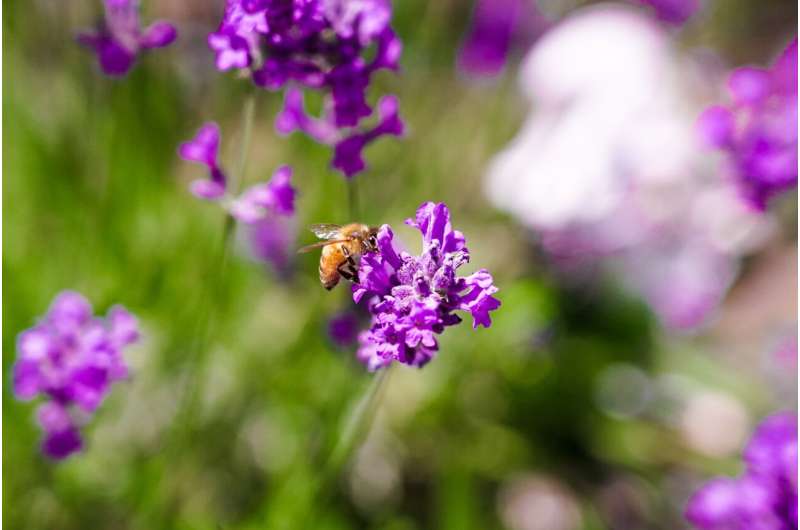June 28, 2023 report
This article has been reviewed according to Science X's editorial process and policies. Editors have highlighted the following attributes while ensuring the content's credibility:
fact-checked
peer-reviewed publication
trusted source
proofread
Honeybees found to be less effective pollinators than native species

A pair of ecologists with the University of California has found that honeybees are not as good at pollinating flowers as native pollinators. In their study, reported in Proceedings of the Royal Society B, Dillon Travis and Joshua Kohn obtained samples of pollinated flowers in the wild and compared them to see how well they fared when pollinated by different types of pollinators.
Honeybees are not native to the U.S.; they originally came from Africa and Eurasia. They were imported to North America in the 17th century and since that time have flourished—at least until recent times, as numbers are declining due to colony collapse disorder. In this new effort, the researchers wanted to know if honeybees were doing a good job pollinating compared to native pollinators such as other bee species, butterflies, and moths.
To find out, they set themselves the grueling task of sitting out in fields at sites in the San Diego area, waiting for pollinators to pollinate the flowers around them. To make for fair comparisons between pollinator types, the researchers restricted the study to just three types of flowers: white sage, black sage and Phacelia distans.
The researchers collected seeds from the plants visited by the pollinators and inspected them back at their lab. They also planted many of those that had been pollinated to see how well they grew. The researchers also pollinated some of the flowers themselves to serve as a control.
Travis and Kohn found that honeybees were by far the most frequent pollinators in the areas under study. They also found that white sage and P. distans plants pollinated by honeybees produced approximately half as many seeds as those pollinated by native pollinators. They also found that P. distans plants grown from seeds pollinated by honeybees had fewer flowers than those pollinated by native species. The honeybees tended to visit many more of the flowers on a single plant compared to native species, which could explain the low quality of the seeds—bees moving pollen between flowers on the same plant leads to inbreeding.
More information: Dillon J. Travis et al, Honeybees ( Apis mellifera ) decrease the fitness of plants they pollinate, Proceedings of the Royal Society B: Biological Sciences (2023). DOI: 10.1098/rspb.2023.0967
Journal information: Proceedings of the Royal Society B
© 2023 Science X Network



















